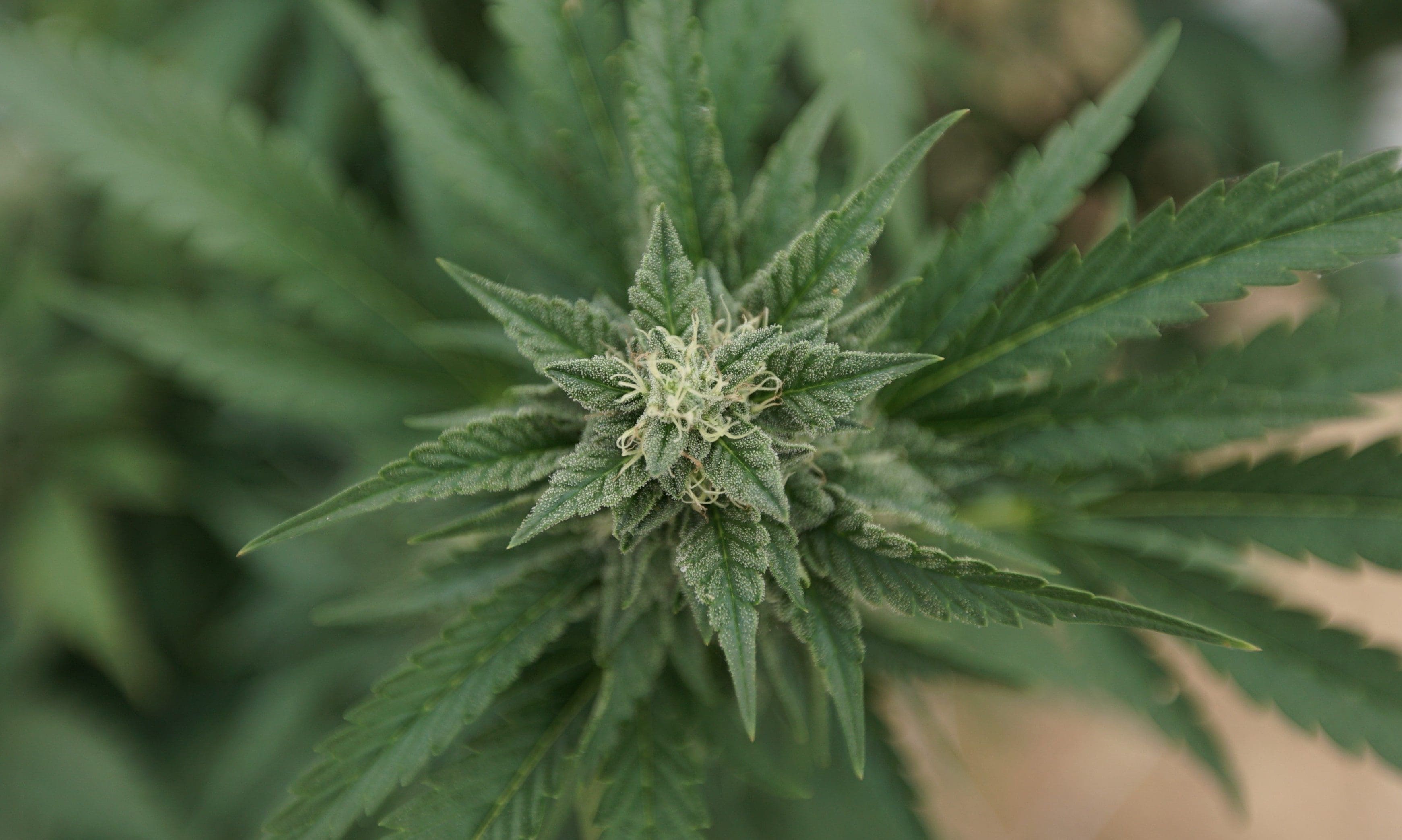Politics
California Governor Proposes Marijuana Tax Cuts To Combat Illicit Market

The governor of California unveiled an updated budget proposal on Friday that calls for the elimination of the state’s marijuana cultivation tax and revised cannabis tax revenue allocations.
Gov. Gavin Newsom’s (D) May revised budget would take steps intended to combat the illicit market and make the legal industry more competitive, in large part by zeroing out the cultivation tax that marijuana businesses currently incur.
It’s a move that stakeholders have been pushing for, especially as businesses have struggled to keep up with rising inflation and reduced demand compared to peak coronavirus pandemic levels. The governor emphasized on Friday that he was specifically committed to exploring ways to minimize the influence of illicit growers and sellers on undercutting legal, licensed businesses.
And while one might assume that removing the cultivation tax would hamper revenue streams for the state, a recent analysis from the Reason Foundation actually found that monthly tax revenue would increase by 123 percent by 2024 if the policy change was enacted.
Eliminating the cultivation tax would allow farmers and licensed cannabis retailers to lower prices, making California's legal marijuana market fare more competitive with illicit markets. https://t.co/817c6Oj0Nr
— Reason Foundation (@ReasonFdn) May 13, 2022
The report said that ending the cultivation tax would mean lower costs for consumers and, therefore, increased legal purchases that would more than offset any revenue losses over time.
Newsom’s proposal on its own isn’t binding, however. It would need to pass the legislature with at least a two-thirds majority in order to be implemented.
*proposed to eliminate the cultivation tax*.
2/3 of the California Legislature has to approve this proposal so time to turn your attention, energy and advocacy to them.
— Nicole Elliott (@NicoleElliottCA) May 13, 2022
“We’ve been working very closely with legislative leaders, and we’ve made tremendous progress,” the governor said at a briefing on Friday. “We haven’t finalized any of that, so I want to be careful not to disrupt that progress.”
Sam Rodriguez, policy director for the cannabis farmers advocacy group Good Farmers Great Neighbors, praised Newsom’s move in a statement to Marijuana Moment.
“California farmers are pleased that the governor has taken a leadership role in addressing the ills of the illicit market with a starting point on tax relief,” he said. “We look forward in working the legislative budgetary process to obtain more tax relief necessary to stabilize the supply chain. The legal market in our state needs a real bootstrap approach from our state. Anything less will potentially devastate the newly created cannabis economy. And that would be a travesty.”
The governor’s revised budget proposal also includes updated estimates on tax revenue allocations for the 2022-23 fiscal year.
The state is expecting to distribute $401.8 million for education, youth substance misuse treatment and school retention; $133.9 million for environmental clean-up and remediation related to illicit cannabis manufacturing and $133.9 million for law enforcement purposes.
“These figures reflect a total increase of $74.7 million compared to the Governor’s Budget estimate,” the revised budget summary says. “These estimates also reflect the proposed statutory changes to restructure the cannabis tax framework and maintain a baseline level of funding for this allocation.”
Separately, the governor’s plan would involve shifting “the point of collection and remittance for excise tax from distribution to retail on January 1, 2023,” while maintaining the 15 percent excise tax rate on marijuana sales.
The budget further calls for the creation of a one-time “cannabis local jurisdiction retail access grant program” to support the development and implementation of local retail licensing efforts. The $20.5 million for that program would come out of the state general fund. Localities that license equity applicants could receive additional funding.
Newsom said the goal of the initiative is “addressing the persistent issue that is exactly what we anticipated would be a persistent issue—and that’s dealing with the black market, going after the illegal growers and the illegal operators.”
“This is beginning of a process,” he said. “From my humble perspective, in terms of my thinking, this will be a multi-year process to get that black market, get it on the retreat—not the ascendancy—and to get the retail and responsible adult-use market on steady ground.”
Nicole Elliott, director of the Department of Cannabis Control, said that the budget’s cannabis provisions would “remove unnecessary administrative burdens and costs.”
“We have heard from many of you who have said that the current cannabis tax framework is overly complex,” she wrote in an email to industry stakeholders. “We know that current tax policies disproportionately burden cannabis farmers and small businesses and create instability throughout the supply chain, ultimately undermining the societal benefits of a taxed and regulated market.”
Meanwhile, California officials announced in January that the state had awarded $100 million in funding to help develop local marijuana markets, in part by getting cannabis businesses fully licensed.
The state Department of Cannabis Control (DCC) distributed the funds to 17 cities and counties where there are a disproportionate number of provisional marijuana licenses, rather than full-year licenses. The department first announced that applications for the Local Jurisdiction Assistance Grant Program had opened in October.
Also last year, the state said it was awarding about $29 million in grants to 58 nonprofit organizations, with the intent of righting the wrongs of the war on drugs. The funding is being provided through the California Community Reinvestment Grants (CalCRG) program.
Grants are being awarded to qualifying nonprofits to support programs aimed at providing job placement, mental health treatment, substance misuse treatment and legal services for disproportionately impacted communities. The program was first announced in April 2020, and applications for those grants were initially opened in September 2020.
Officials with the California Department of Fish and Wildlife also said last year that they were soliciting concept proposals for a cannabis tax-funded program aimed at helping small marijuana cultivators with environmental clean-up and restoration efforts.
Colorado Activists Collect Tens Of Thousands Of Signatures To Put Psychedelics Reform On Ballot
Photo courtesy of Chris Wallis // Side Pocket Images.
















